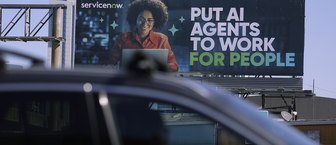Recent data released by the Centers for Disease Control and Prevention found that three in five teenage girls felt persistent sadness in 2021 and one in three teen girls seriously considered attempting suicide. This is the highest level of sadness among this group reported over the last decade. One psychiatrist quoted in a New York Times article about the CDC report says there is “no question” of an association between this increase and the use of social media. A new YouGov poll finds that 88% of Americans believe social media is at least somewhat responsible for the increase of depression among teenagers.
Among U.S. adults, 19% believe social media is completely responsible for the increase in depression among teenagers. One-third (34%) say social media is mostly responsible, and the same percentage say it is somewhat responsible. Very few Americans say it is not very responsible (4%) or not at all responsible (2%).
Among members of Generation Z (born in 2000 and later), 82% believe social media is at least somewhat responsible for the increase. Millennials (born between 1982 and 1999) hold similar opinions, at 87%. Members of Generation X (born between 1965 and 1981) and Baby Boomers (1946 - 1964) tend to agree, at 87% and 91%, respectively. (These definitions of the birth years included in each generation differ from Pew Research Center’s and others; there is no single official definition.)
Men and women are also largely in agreement on this topic, with nearly nine in 10 who believe social media is at least somewhat responsible for the recent increase in depression among teenagers and particularly teenage girls.
When it comes to the impact of social media on their own mental health, Americans' opinions are mixed. The percentage of people saying social media has a positive impact on their mental health (31%) is roughly equal to the share saying it has a negative impact (30%). Another 28% say its impact is neither positive nor negative.
Millennials are more likely than members of both older and younger generations to say social media is positive for their mental health. While 34% of Gen Zers say this, 47% of Millennials do. Far fewer Gen Xers (16%) and Baby Boomers (12%) agree.
Looking at generation and gender, it appears that within most generations, women are slightly more likely than men to view social media as having a negative effect on their mental health. The exception is among Baby Boomers. Men (36%) and women (35%) of this generation are about equally likely to say social media has had a negative impact on their mental health.
For Americans who feel social media affects them negatively, a social-media break may be one solution. Nearly four in 10 Americans say they’ve taken a break from social media because it was having a negative effect on their mental health.
Members of Generation Z (42%), the Millennial generation (45%), and Generation X (40%) are similarly likely to have taken a social-media break. Far fewer Baby Boomers (23%) say they’ve done this. Men (37%) and women (38%) are roughly equally likely to have taken a social-media break.
Another recent YouGov poll also finds that Americans have mixed feelings about social media’s impact on their lives: 38% believe the invention of social media was a good thing for humanity, but 29% believe it was a bad thing, according to the March 2023 poll.
Related: Most say the invention of the internet was good for humanity; not so for social media
— Linley Sanders, Taylor Orth, and Carl Bialik contributed to this article
Methodology: This Daily Questions survey was conducted online on February 22 - 23 among 6,809 U.S. adults. The sample was weighted according to gender, age, race, education, U.S. census region, and political party.
See results of this poll:
- Recent studies have shown an increase in depression among American teenagers, especially teenage girls. To what extent, if at all, do you think that social media is responsible for this increase?
- Overall, do you think that social media has more of a positive or negative effect on your own mental health?
- Have you ever taken an extended break from social media because it was having a negative effect on your mental health?
Image: Adobe Stock (Monkey Business)








